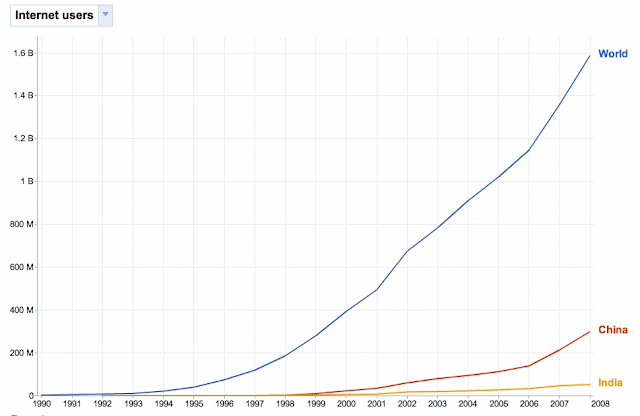In 1979 I visited Turkey for the first time. I like Turkey - it's a great and beautiful country with lots of history. It also shows how Islam and extremism don't go hand-in-hand and how an Islamic country can also be a liberal democracy. Like all free countries, it has its share of extremists who spout forth nonsense that would guarantee a jail sentence or death in the autocracies that govern most of the world. However that is not what this post is about - although Turkey is the seed for the post.
It was August 1979, and I was backpacking, staying in cheap hostels. A standard item of conversation back then was whether it was safe to travel through Afghanistan on the overland route to India. Turkey was one of the first stopping places on this route that travelled through Iran, Afghanistan, Pakistan and on to India.
From a 1970s Trailfinders brochure showing suggested routes to India
Travellers were talking about the attacks on tourists journeying through the country and how some tourist buses had been shot at.

A postcard sent to me by a friend I'd met when travelling through Europe who wanted to go on the overland routes to India. Karla had hoped to go through Afghanistan but as I've highlighted, felt it wasn't safe. This postcard was sent the day before the Iran hostage crisis and shows the atmosphere in Iran at the time.
I knew nothing about Afghanistan at all and when I got back to the UK started to read up. There was very little in the press - and certainly no headlines. However reading between the lines, I realised that not only was there a civil war going on, but that this was threatening the Southern borders of the Soviet Union. The situation was unstable and something had to happen.
Over Christmas in 1979, Soviet tanks rolled into Afghanistan with the aim of bringing back order to the country. The Soviet aim was not to colonise the country but to prevent the ferment from spreading and leading to sectarian movements on the Soviet borders. However that is not how the world, led by the USA saw things. This was the time of the
cold war. Any way that the West could score points against the
Soviet bear was legitimate. The initial response was massive anti-Soviet propaganda, ignoring the initial context. Later on, the US funded the
Mujahaddin fighting against the Soviets, including Osama Bin Ledin - a c
ase of the enemy of my enemy is my friend.
My response however was different. I saw that the Soviet incursion had been an obvious solution to a problem that they faced, and that the correct approach was to treat it as such, rather than as a global problem. Afghanistan had been a flashpoint that the world had seemingly ignored. It led, eventually, to the
break-up of the Soviet Union, when it became impossible to hide the costs in both lives and money by the secretive Soviets. I believe that
Perestroika and the 1991 fall of the Soviet Union was partially a result of the Soviet's Afghan adventure.
The point of all this is that newspapers publish
- what their editors view as of interest to their readership
- news when they have sufficient information for a story.
This is important for competitive intelligence, business analysis and common sense. Without this realisation people are likely to jump to incorrect conclusions based on what they read. The only way to read a newspaper is to question each story and ask why it was published - to understand the hidden agenda.
When there is insufficient information or where it is dangerous for journalists to publish a news story, then however potentially important that news story is, it won't get published. That is why so few bad news stories highlighting lack of freedom, atrocities and so on are published on the autocracies that rule much of the world. Instead, news focuses on countries where there is a relative freedom to publish, and journalists can report on what is happening unimpeded by the authorities.
If something is not fashionable then it won't be published or what is published will correspond to what people want to read. This is the case with much reporting on Israel. Israel is now seen as a "
shitty little country" (as described by a former French Ambassador to the UK). It's definitely not fashionable to support it - despite the fact that it is the only full democracy in its region with a free and functioning press, Arab parliamentarians, and equal rights for all its citizens. It has also been at war for over 60 years - with its enemies being countries that, in general, are totalitarian and that imprison, torture and execute dissenters. It has been attacked with missiles fired daily at its cities, yet is lambasted when it responds - most recently by blockading the territories from where the missiles were fired (Gaza). Israel is condemned for trying to protect its citizens and for fighting a territory ruled by a group,
Hamas, that is viewed as a terrorist group by Western countries, including the US, the EU, Japan and Canada.
In contrast to the situation in Israel - where every action is microscopically analysed and hits the headlines, much less appears on newspaper front pages and as headline news about the very recent massacres of
Uzbeks in Kyrygyzstan. Virtually nothing came out about the
Syrian destruction of the city of Hama in 1982, in contrast to the blanket reporting of the events at
Sabra & Chatila in the same year. Even in this case, Israel is blamed for the actual attacks while in reality the massacre was carried out by Christian Phalangists in revenge for earlier attacks on them by the Palestinians. The reason for all these examples is that much less information was available from Syria and Kyrygyzstan. Both countries don't have the free press that Israel has, and in both cases, publishing such news could lead to the journalists being arrested, and probably tortured or killed. As a result very little is seen.
The same selectivity appears in the business press too. Currently
BP is under the spotlight for its responsibility for the
US oil spill. Although I'm sure that BP bears much of the blame for this disaster, very little has been written about the other companies involved including
Transocean and
Halliburton. Although BP was the largest shareholder in the well, Texas based
Anadarko Petroleum owned a quarter and the
Mitsui Oil Exploration Company via its MOEX Offshore subsidiary owned 10%. Transocean owned the rig and of the 126 people working on the rig, 79 were Transocean employees (against only 7 BP employees). Halliburton cemented into place the casing for the well that blew. In fact, the other companies bear
some of the blame - if only by not ensuring that best practice was followed and allowing BP to cut corners (if that is what happened). The US regulator, the
Minerals Management Service, that had approved the well should also shoulder
some responsibility.
It is now fashionable to attack BP - with President Obama (
showing an anti-British prejudice), referring to the company as British Petroleum, when the correct name has been BP for many years, reflecting the fact that more of its employees are American than British (BP has 23,000 US employees and under half that number of British employees. Of its 9
senior executive members there are more non-UK members than UK ones with four US positions). The problem is that sometimes it is better for those in power to hide the truth - whether they run a company or a country.
Competitive Intelligence means looking behind the news and doing an analysis to find the truth. That is not the role of newspapers. Their role is simple: to sell and make profits for their owners. If that means subjective reporting, then so be it. Fortunately the quality press sometimes does publish unfashionable news stories and carries out independent analysis. An
excellent recent example is an article by Jose Maria Aznar - the Prime Minister of Spain between 1996-2004. Aznar writes (in the London Times - 17 June 2010) about Israel and how failure to support Israel threatens Western values overall. He states that the Gaza episode "
is a distraction" and that "
Israel is the West's best ally in a turbulent region". A shame that there is not more analysis of this type. As this is what true objectivity involves.
Proof of Aznar's thesis can easily be found. For example, a recent
Twitter tweet lamented the loss to the Moslem world of
Andalucia, and advocated the route of the martyr, and reaching for life in the hereafter in preference to life in this one.
@ the second we lost andalus we lost dignity. wars came 2 remind us again. We lost it was when we chose this life over hereafter
Unfortunately publicising such views are unfashionable and often suppressed - so instead we draw incorrect conclusions and victimise the victim (e.g. Israel) and praise the oppressor (e.g. Hamas).








